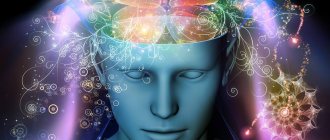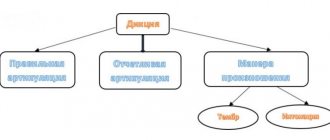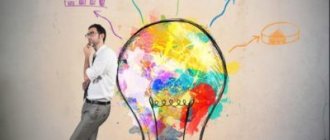- September 8, 2018
- Life style
- Antonova Ksenia
Everyone has heard the expression that people who read books are always more successful than people who watch TV. The issue of reading books is especially relevant with the development of modern technologies. Most people now watch various videos, read short posts on social networks and websites, and, of course, play computer games. Now a person has more ways to get information. And what is the benefit of reading books?
Helps relax
How is reading useful? According to sociological surveys, it is among the top 10 ways to help relieve tension and stress. And how does reading help you relax? Reading has always attracted people because it allows them to awaken their imagination. A person can temporarily find himself in a fairy-tale world, cutting himself off from routine and everyday worries.
It is also recommended to read books before bed - then you can relax and your brain can take a break from everyday activities. Just you need to read not complex scientific works, but easier literature. Reading has a beneficial effect on the nervous system, which also has a good effect on sleep.
By turning on the imagination, a person begins to receive various emotions from reading. And reading is one of the ways to form thinking. In addition, by relaxing and putting the book aside, a person can look at some things from a different angle, which can be very useful. Nowadays there are many different literary genres, and a person can choose the one that suits him most.
Why you need to read
In this article we will look at 8 reasons why every person who wants to develop should read.
Imagination
It is reliably known that reading books directly affects the development of imagination.
Imagination is the ability of the mind to create and manipulate images, ideas and ideas. Imagination plays a key role in mental processes such as simulation, planning, creativity and memory.
In a broad sense, any process occurring “in images” is imagination.
So, reading books is one of the most effective ways to develop imagination. After all, in the process of getting to know the plot, our brain draws us pictures that the eye does not actually see. We imagine what certain characters look like, in what setting the actions take place, and so on and so forth.
To make sure that imagination plays almost the key role in the reading process, remember how, after reading a book, you had to watch a movie based on it. How, looking at some heroes, did you think: “Well, no, this person does not at all correspond to the image described in the book.”
This happens because your brain, while you were reading, drew a certain image in your mind, and now it is compared with what you see in the film.
All this is a consequence of the active work of the imagination.
Albert Einstein said: “Imagination is much more important than knowledge,” and some of his lectures began with the words: “Imagine that you are sitting astride a beam of light...”.
Therefore, you should not think that imagination is the lot of romantics and writers. Great scientists have used it very successfully to make great discoveries.
One of the greatest scientists in history, Henri Poincaré, believed that imagination is the most important factor in intuitive discoveries.
Mental health
It has been noted that regular reading helps a person maintain mental health.
French writer Daniel Pennac said:
The paradox of reading is that it takes us away from reality in order to fill reality with meaning.
Of course, it cannot be said that reading can guarantee a cure for Alzheimer's disease. But as a preventive measure for dementia, reading good literature is a very effective remedy.
After all, the reader’s brain is in constant tone and creates millions of new neural connections, which simply cannot but have a beneficial effect on the development of intelligence.
Those people who have read a lot throughout their lives begin to notice age-related declines in memory and mental abilities much later compared to their peers who do not read.
Confidence
An interesting fact is that, as a rule, people who read are more confident in themselves. This is explained by the fact that a well-read person is more erudite and is able to identify and defend his point of view in almost any discussion.
Moreover, if a person reading is not knowledgeable about a particular topic, he will be able to, as they say, “orient himself along the way,” since his thinking abilities are quite highly developed.
All these things on a subconscious level make a person more confident in himself, his knowledge and abilities. As a result, his self-esteem is at an adequate level.
Lexicon
It's no secret that regular reading expands your vocabulary, making your speech beautiful, rich and convincing.
A vocabulary (or lexicon) is a set of words that a person knows. There are two types of vocabulary: active and passive.
- Active includes the words a person uses in speaking and writing.
- Passive includes words that a person recognizes when reading or hearing, but does not use them himself in speech and writing. Typically, passive vocabulary is several times larger than active vocabulary.
In order not to be like Ellochka the cannibal from the novel “The Twelve Chairs”, who freely used thirty words to convey almost any thought, you need to constantly read.
Let's do a little test. What synonyms can you find for the word “banal” »?
Clue
Trivial, unoriginal, vulgar, ordinary, stereotyped, stereotypical, hackneyed, mediocre.
What about the word “cool”?
Clue
Interesting, entertaining, great, amazing, funny, original, amazing.
Well, the last word is “chaos”.
Clue
chaos, confusion, turmoil, bedlam, confusion, confusion, confusion, mess, commotion, turmoil.
It is unlikely that anyone will argue with the fact that regular reading can significantly increase your vocabulary, making your speech rich in forms and meaning.
By reading authors who write well, you get used to speaking well.
Voltaire
Concentration of attention
In the age of high technology and super speed, it is becoming increasingly difficult for a person to concentrate on one thing. The notorious multitasking, which is somewhat of a fiction, prevents people from concentrating.
Perseverance and calm concentration become rare, giving way to constant fussiness and superficiality.
It is believed that one of the most important factors for effective personal development is the ability to concentrate attention on one thing for a long time.
Reading is the best way to develop this skill. After all, our brain, carried away by the storyline, is completely focused on the event being described.
The more regularly you read, the more your brain gets used to focusing on one thing for an increasingly longer period of time. This is an extremely important skill that anyone can develop.
Genius is the patience of thought concentrated in a certain direction.
Isaac Newton
Memory and thinking
It is reliably known that reading has a very beneficial effect on a person’s thinking and memory. Those people who read at least one hour a day have a much more flexible and developed memory than those who do not read.
This is understandable, because reading allows you to break away from your daily routine and immerse yourself in another reality, where completely different events take place.
Moreover, the abundance of new names and biographies of heroes very actively stimulate memory.
I remember how, as a child, when I started reading a new book by a French or German classic, I experienced a slight but pleasant jitters from the abundance of complex names and the understanding of the need to remember them all. Of course, this cannot help but train your memory. In this sense, it was much easier with Russian classics.
It is also worth noting that regular reading of books develops thinking, allowing you to collect, analyze and interpret the information received. By doing this repeatedly, you train your brain to think correctly in real life.
It is unlikely that anyone will argue with the fact that a person who reads a lot is a much more subtle and observant psychologist than one who has never touched a book.
Reading is for the mind what physical exercise is for the body.
Joseph Addison
Horizon
The influence of reading books on the development of one's horizons is so great that it is difficult to overestimate. After all, by reading good literature, you not only study psychology, learn to think and analyze, but also gain a unique experience of observing life.
Moreover, sitting in a comfortable chair with a cup of tea, you can get acquainted with the culture and life of other peoples and countries. Basically, reading is a journey that you take without leaving your home and without spending a penny of money.
A well-read person has a broad outlook and is able to surprise even narrow specialists with his knowledge.
In addition, we should not forget that many classical works are written in the context of historical events.
Of course, you won’t be able to study the era of the Napoleonic Wars with the help of Tolstoy’s War and Peace, but you will certainly gain unique information, including historical information, and significantly expand your horizons.
Self-development
Surely everyone will agree with the statement that reading directly affects personal development. Considering all the arguments presented above, the importance of reading increases markedly, and the question itself becomes urgent and relevant.
If you try to explain in simple language the benefits of reading and how it differs from, for example, watching a movie, it might look like this.
When reading, information passes through the eyes to the brain, where it is carefully processed. The imagination takes an active part in this process and draws certain images. When the images are created and the brain, according to the plot, puts them in their places - then only we experience feelings and emotions.
That is, the primary link here is the brain.
When watching a film, images and images are not created by the brain, but enter it in a ready-made form. That is, the brain does not take an active part in this process, but immediately transmits information to feelings and emotions.
It is not difficult to guess what harm this can cause, since a person who is accustomed to being guided by emotions in everything is unlikely to do anything against someone who gives preference to reason.
Of course, this is a very simplified explanation, and perhaps there will be critics who will explain why this is not so.
But, nevertheless, I prefer for my children to either read books or turn on audio for them, where masters of artistic expression superbly replace any cartoons. At the same time, the child’s brain takes a direct part in the listening process and, naturally, actively develops.
Georges Elgozy has a famous quote:
There are two greatest inventions in history: printing, which put us in front of books, and television, which took us away from them.
Fortunately, this matter is fixable, and if desired, everyone can resolve this issue for themselves.
Expands vocabulary and improves literacy levels
Many modern people underestimate the benefits of reading books. But they are one of the sources of replenishing your vocabulary. By reading various literature, a person learns new words and their meanings. Thanks to your extensive vocabulary, you can explain your thoughts to people in a detailed and clear manner; your speech will be interesting with well-written sentences.
If you compare the speech of a book lover and someone who spends many hours playing computer games, you will hear that their manner of speaking is very different. The one who reads will be able to structure the speech so that it is understandable to you, replace difficult-to-understand words with synonyms and add beautiful phrases to make it more interesting.
But how do books improve literacy levels? While reading, a person encounters the same words many times and remembers their correct spelling. It's the same with punctuation. Therefore, by reading books, a person increases his level of literacy.
Comparison of reading with watching TV
Very often, young modern people lie in front of the TV with chips and do not look up from the screen for hours. This is a very common temptation to have fun and turn your brain off from your problems. But the magic of TV will never compare to a book. Each piece is unique and develops the imagination. Reading forces you to get in touch with your inner world. Streams of information from TV do not settle in memory, and therefore do not lead to reasoning and reflection. Books teach you to think, and TV teaches you to mindlessly absorb information.
Adds confidence
Some people believe that the benefits of reading books are less than watching short posts and notes on social networks, as well as various videos. Of course, watching videos can also be beneficial if they are educational. But reading makes a person feel more confident.
And we're not talking about psychology books or other various tips on how to deal with self-doubt. By reading various literature, you increase your level of education. Many famous scientists and writers preferred to spend time in libraries rather than in educational institutions.
You independently search for information and choose which subject you want to deepen your knowledge on. When you demonstrate your erudition to others, it increases your confidence. And the admiration of your knowledge by others has a beneficial effect on your self-esteem.
What does reading develop?
Quotes from many great men were dedicated to this process. For example, Stanislav Strumilin said that books give birth to a dream, bring it to life, foster independent judgment and make you think. Let's try to take a closer look.
- Thinking . Our brain is actively activated in order to understand what is being said, process new information, make conjectures and remember stories. The more often we devote time to this, the more actively our thinking will develop.
- Memory . Our cognitive processes are always in good shape due to the fact that we have to remember many nuances to understand the plot. Starting from some terms and ending with a banal description of the main character. After all, if we miss or forget some points at the beginning of the book, we will not be able to understand the whole picture of what is happening as described by the author.
- Fantasy . We fantasize, trying to guess and anticipate completion. We are conjecturing moments that the author chose to remain silent about. Images of characters unconsciously appear before our eyes, over time developing our creative thinking more and more, sometimes encouraging us to dream.
Familiarization with stories and scientific literature is an important component in the process of self-development. Many great people have devoted most of their time to this. The large library was the greatest value and source of pride for many of them.
Joseph Stalin was one of the most voracious readers among other government leaders. What can we say: Leo Tolstoy, Ernest Hemingway, Marcus Tullius Cicero, Honore de Balzac had a huge number of different volumes in their libraries, without which they could not imagine their lives.
And this list can be continued endlessly. In addition, most of them excelled at speed reading. They could cover a large piece of information in a minimum period of time, and still understand and assimilate the information.
You can read about how to learn this in my article: “How to increase your reading speed without losing the quality of information perception to save your time.”
Develops memory and thinking
Literature has a beneficial effect on higher mental functions. What does reading books develop? Of course, memory and thinking. While reading a book, a person talks about an episode, reflects on the actions of the characters and forms his own opinion about the book he read.
Also, while reading, a person needs to remember the characters, their history and other details important to the plot. Because then you will be able to understand the story better, and you won’t have to re-read the same episode several times. Various poems and poems train the memory especially well. Therefore, book lovers are usually better at finding the necessary information and highlighting the main thing, and comparing and systematizing information trains logical thinking.
Books improve memory
When you delve into a story you read, you must remember the whole gamut of nuances - you get to know new characters, their stories, passions, habits, the places from which they come, you learn the geography of new worlds. Reading makes you a participant in events. Each book is like a journey to a foreign country. Each new trace in memory requires the emergence of new synapses and neural connections, the benefits of reading for your brain are obvious. Reading makes our memory a more reliable store of information.
Helps you look at the situation from the outside
Psychologists believe that the benefit of reading books also lies in the opportunity to look at any situation from the perspective of literature. Often the literature describes situations, but also gives a way to solve them or several different options. Such literature belongs to the psychological genre and allows a person to better understand himself and the people around him.
Such a view from the pages of a book is perceived by a person better than advice given by another person. Because no one imposes a point of view on anyone, and a person does not associate the story of book characters with his friends. Therefore, books help to better understand other people and improve relationships with others.
Books help stimulate the mind
From a neurobiological perspective, reading is a much more complex process than analyzing images or speech. At the same time, reading stimulates many areas of the brain - those responsible for vision, speech and conceptual associations. Reading develops imagination and promotes concentration. Plus, reading books gives you more time to think things through. Having cast your gaze on the sheet, you can stop at any moment and on any fragment that requires analysis. It's much harder to pause while watching a movie or listening to a speech.
Develops creativity
What is the use of books? They have a beneficial effect on the development of creative thinking and creative abilities. Creative people can generate some interesting ideas that can be taken from books. A person can be inspired by the stories of other extraordinary people and begin to engage in creativity.
Nowadays there are not only books with tips on developing lateral thinking, but also so-called creativity notebooks, which offer various tips for developing creativity. But the best thing is when a person can use the acquired knowledge in his activities.
Increases concentration
Psychologists also note that the benefit of reading books is that it increases the level of concentration. After all, in order to better understand a work, a person needs to focus on the plot and not be distracted by other matters. This is especially important for books that require maximum use of thinking.
Often people believe that the faster the reading speed, the better. But this is good only when you understand the meaning of what you read and can analyze the book. And this is not an indicator of concentration. It is better to read more slowly, but understand the meaning of the work.
This ability to concentrate will be useful to a person in any activity. The more focused a person is while reading, the better he will be able to form his opinion about the work. And in life, this skill will allow a person to make more balanced decisions and quickly assess the situation. In addition, concentrating on reading, a person rests and relaxes.
Reading is the most proven way to stimulate the brain
There are many ways to improve memory and brain function. Some people prefer to take various supplements, fish oil, turmeric. Others strain themselves with special puzzles and exercises. But the cheapest, simplest and time-tested way to improve brain function is considered to be reading books.
Moms should always find time to turn off the TV and offer their child a good book. It's amazing that such routine activities improve the brain in many ways. It helps a person stay young longer. While reading, children translate words into images and forms and learn to concentrate. And for older people, reading allows them to maintain a lively mind even in old age.
At first, only 3 symptoms were identified: facts about the main virus of last year
Russians can obtain a vaccination certificate on the government services website
Dating through apps helps create long-lasting relationships
Over time, reading quickly helps you express your thoughts quickly. And if you read slowly, thoughtfully, the work of the parts of the brain responsible for hearing, vision, and speech is synchronized.
Beneficial effect on brain function
Scientists have long noted the benefits of reading in terms of brain function. It protects against Alzheimer's disease. While reading, the brain continues to work actively, which allows it to remain in good shape. All together this has a beneficial effect on his condition, improving it. Therefore, doctors advise reading several pages a day for prevention so that the brain continues to work actively.
Scientists have also proven that a person ages faster as soon as the brain begins to age. And reading allows it to work, which helps you stay young longer. It will be most effective if you not only read familiar literature, but also master new areas with the help of books. Thanks to this, your brain will work actively, which will have a beneficial effect on the functioning of your body.
Useful for dementia, slows down the development of Alzheimer's disease
Books have the power to change our old age. The benefits of reading have been noticed The works of Dr. Robert Freidland, published in the Proceedings of the National Academy of Sciences, prove the benefits of reading. People who regularly read, play logic games or solve puzzles are more than half as likely to develop dementia. Another interesting thing is that watching TV has the completely opposite effect on our brain - it accelerates the development of Alzheimer's disease.
People read books to save your brain!
The benefits of reading books out loud
Most believe it is suitable for children. This technique is also used in school literature lessons. Reading aloud is a form of shared leisure time. Therefore, couples are often advised to read books out loud to each other - this brings people even closer together and adds romance.
Children love reading aloud. Especially if an adult “voices” the characters in the book in different ways. The child develops auditory attention and perception. Also, through emotionally charged reading aloud, children learn to better understand the emotions of other people. But you don’t need to read for too long - it is important that the child not only listens carefully, but also understands the plot of the work.
Also, reading aloud improves auditory perception - a person tries to understand and remember information by ear, this allows one to more actively use thinking. This form of reading improves diction. Try to read slowly so that the listener understands the meaning of the book. Try to convey the character of the characters in your voice, placing accents correctly. This is a great exercise for training your voice. Therefore, reading aloud is necessary at any age.
The benefits of reading books are enormous. But there is no need to force a person to read, because then this activity will not bring him pleasure. You just need to find the book that can interest him. And then a person will be able to open this wonderful world of fantasy and get acquainted with the heroes and their fascinating stories. A book is a person’s friend who will always support.
Try to read a few pages of good literature every day. So gradually you will begin to read more and more. Read books of different genres to keep your brain active. And you will be able to expand your knowledge in various areas, which will increase your self-esteem and make you more confident. Books allow a person to think more broadly, creatively and continue to dream.
Reading poetic texts
Scientists have proven that when reading poetry, the area of the brain responsible for introspection is activated. Poetry makes neurons respond to every word. It activates the area of the right hemisphere. Many poems become favorites and are learned by heart. This greatly develops memory. Students then use many artistic devices from the works to write their own essays. Poetry develops emotionality: feelings of joy, sadness, sympathy, inspiration.
No cramming: students use notes during professor exams
Tasty, juicy and simple: for the New Year I make chicken shashlik in the oven in Parmesan
Research on the skull of an ancient crocodile: scientists are looking for the cause of extinction









